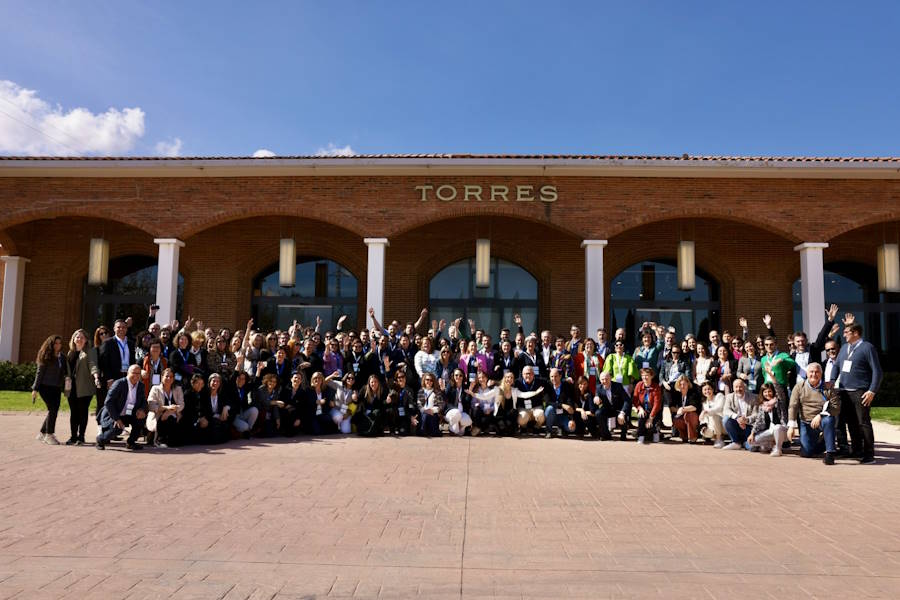Five lessons we can learn from the ICCA Iberian Chapter meeting in Sitges
12/04/2024
# tags: Congress , ICCA Iberian Chapter
In the aftermath of the most recent annual meeting of the ICCA Iberian Chapter in Sitges, Barcelona, at the beginning of March, there are five lessons that remain.
The latest meeting of the ICCA Iberian Chapter, currently chaired by Jorge Vinha da Silva of Meo Arena, allows us to draw five important lessons.
One. These meetings help to build a group spirit, a working family. If we go back a few years, it's easy to remember meetings with a certain tension: Spaniards talking to other Spaniards in Spanish, and Portuguese talking to other Portuguese in Portuguese. The realisation of the difference in size between the two markets, Portuguese and Spanish. And even the fact that Spanish representation outnumbered Portuguese representation. All this seemed to add up, contributing to the 'climate of tension'. Several years on - and many thanks to the generous leadership of Christoph Tessmar, president of the Barcelona Convention Bureau, now continued by Jorge Vinha da Silva, from Meo Arena - that feeling seems to have been definitively overcome. Competitors are still competitors, regardless of which side of the border they're on, but collaboration exists and can always deepen. There's a relaxed, fraternal atmosphere, and even the rookies quickly fit into this affable, family atmosphere.
Two. Belonging to an association like ICCA puts a series of tools in the hands of its members that are not always well exploited. These meetings are a privileged place to remind members of the tools available to them. Strangely, or not, the majority of attendees don't know about or don't usually take advantage of the options available to them, be it in the association's database - one of the largest in the industry - at training events, networking events or those for exchanging contacts between members and potential clients.
Three. Knowledge is often within doors. The Chapter realised this several years ago and tries to ensure that at every meeting members are also the protagonists in presentations, conversations and sharing experiences. After all, competition is natural, even healthy, among peers in the same trade, but it can coexist perfectly with the sharing of ideas and even business opportunities.
Of course, there's always room for a keynote speaker, as was the case this year with Veemal Gungadin. The co-founder and CEO of Gevme and head of Spark is a recognised figure in the world of event technology, above all for the innovative integration of generative Artificial Intelligence (AI) [capable of creating new content such as text, images, music, audio and videos] in the organisation and management of events.
Honorary treasurer of SACEOS - Singapore Association of Convention and Exhibition Organisers and Suppliers, he plays a key role in strengthening the business events community in the region. Mr Gungadin has also served on the Board of Directors and the Board of Trustees of the Professional Convention Management Association (PCMA).
Veemal Gungadin gave several examples of how to use tools such as Google's Gemini. The applications are numerous, but these examples ranged from turning a video interview with an event speaker into a set of social media posts to creating a promotional campaign for a conference.
Curiously, Gungadin's perhaps most interesting message was: 'Doubt it'. Embrace these new tools, fuelled by AI, yes, but always doubt and question the results.
Four. The experience of bringing together more than one Chapter at each annual meeting. This time it was France and Benelux. A year ago it was the Mediterranean. The idea is to be able to hold larger meetings, with greater diversity, absorbing the idiosyncrasies of each of these Chapters, so that all ICCA members benefit from this sharing.
Five. The trend of taking this type of event to secondary destinations was only confirmed once again with this year's edition in Sitges, in the Barcelona region. This was the opportunity to showcase a destination with its own arguments, and quite competent ones at that, but which inevitably lives in Barcelona's shadow. One of the main venues chosen was the estate of the Torres family, one of the most important wine producers in the world.
And if we want another example of this choice, last year, when the responsibility for the organisation fell to Portugal, the choice was Évora. And if we keep going backwards, many other examples will emerge.
This challenge of distributing events throughout the year and across different regions will be common to almost all countries.


